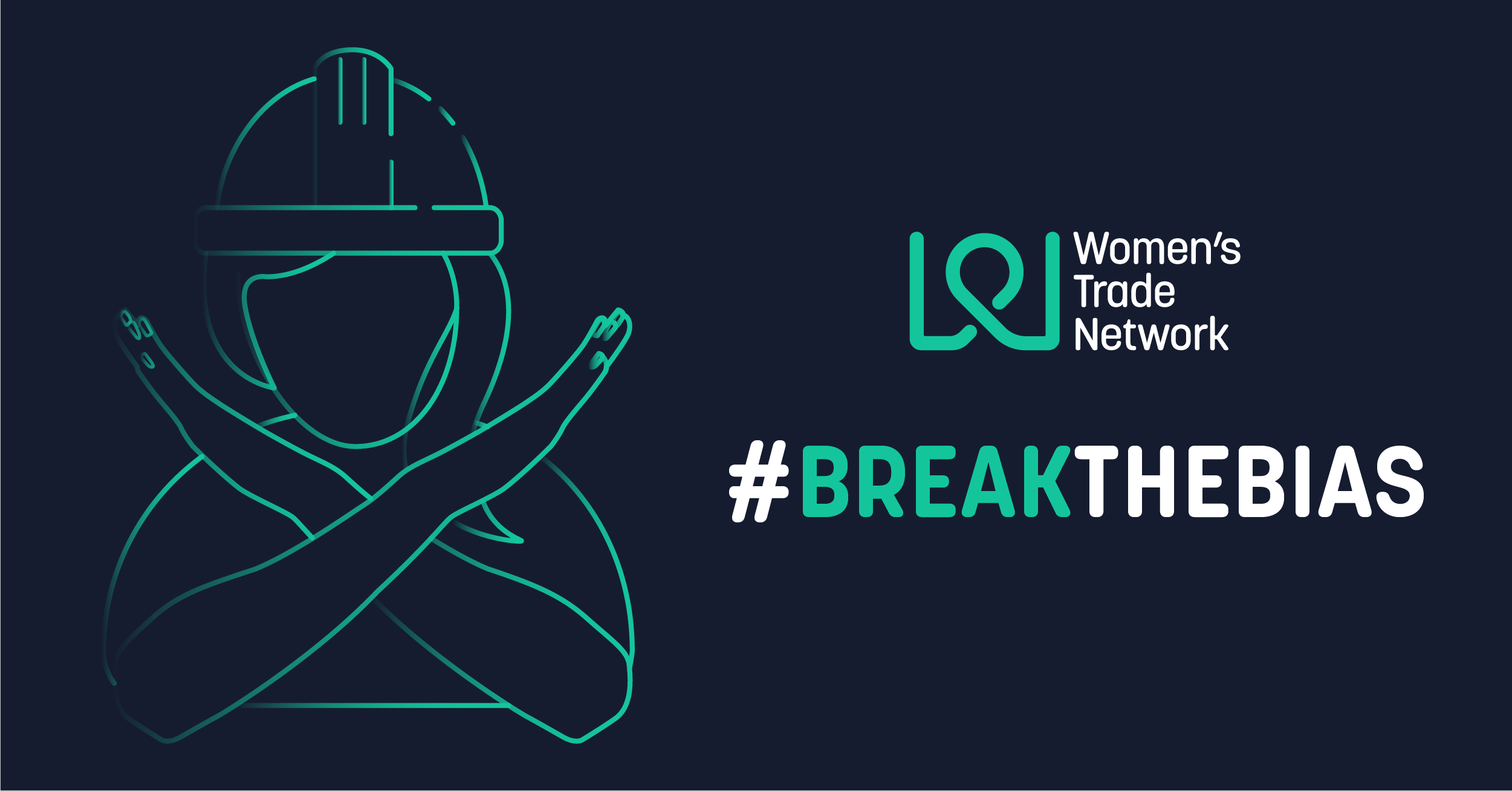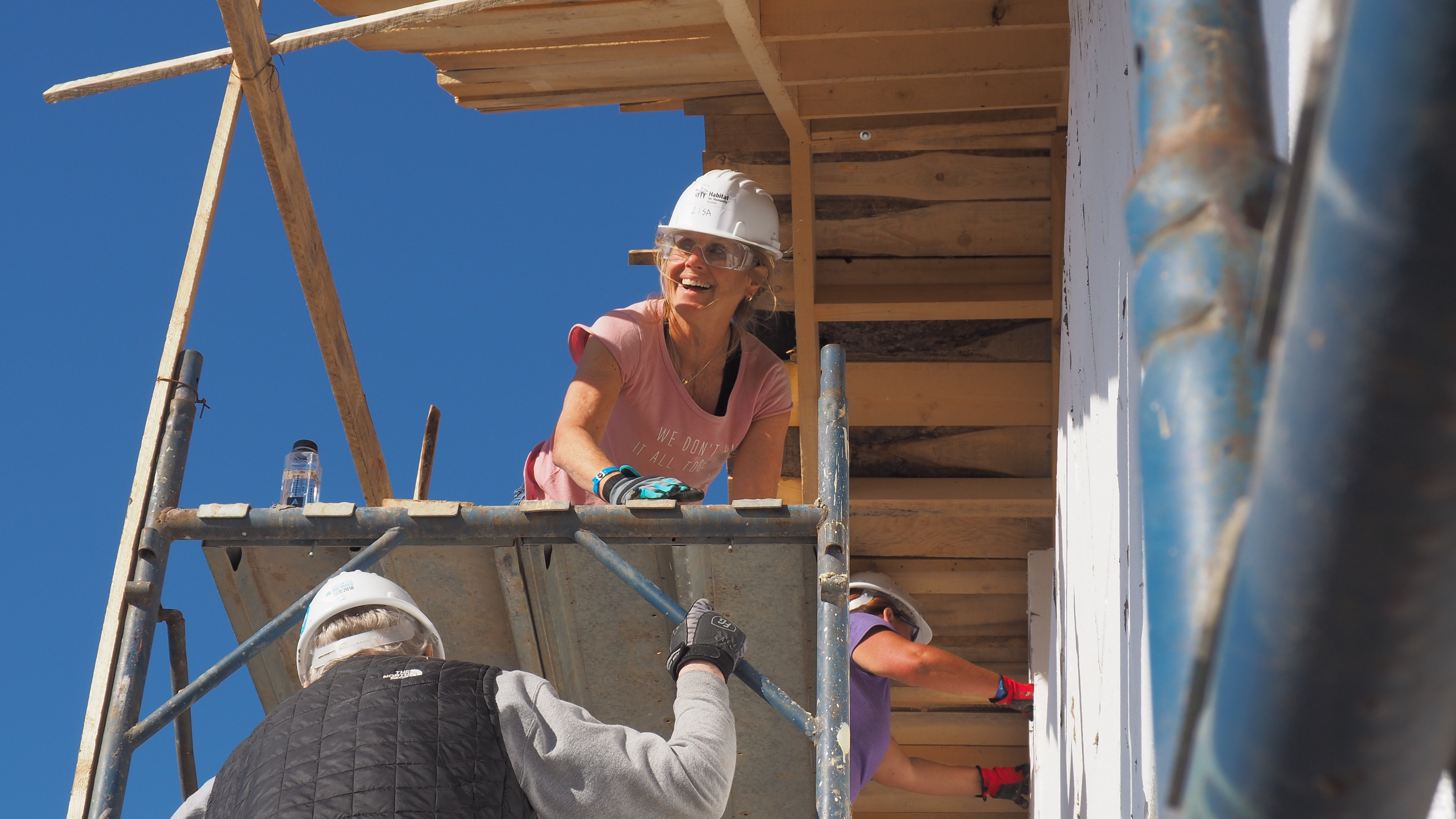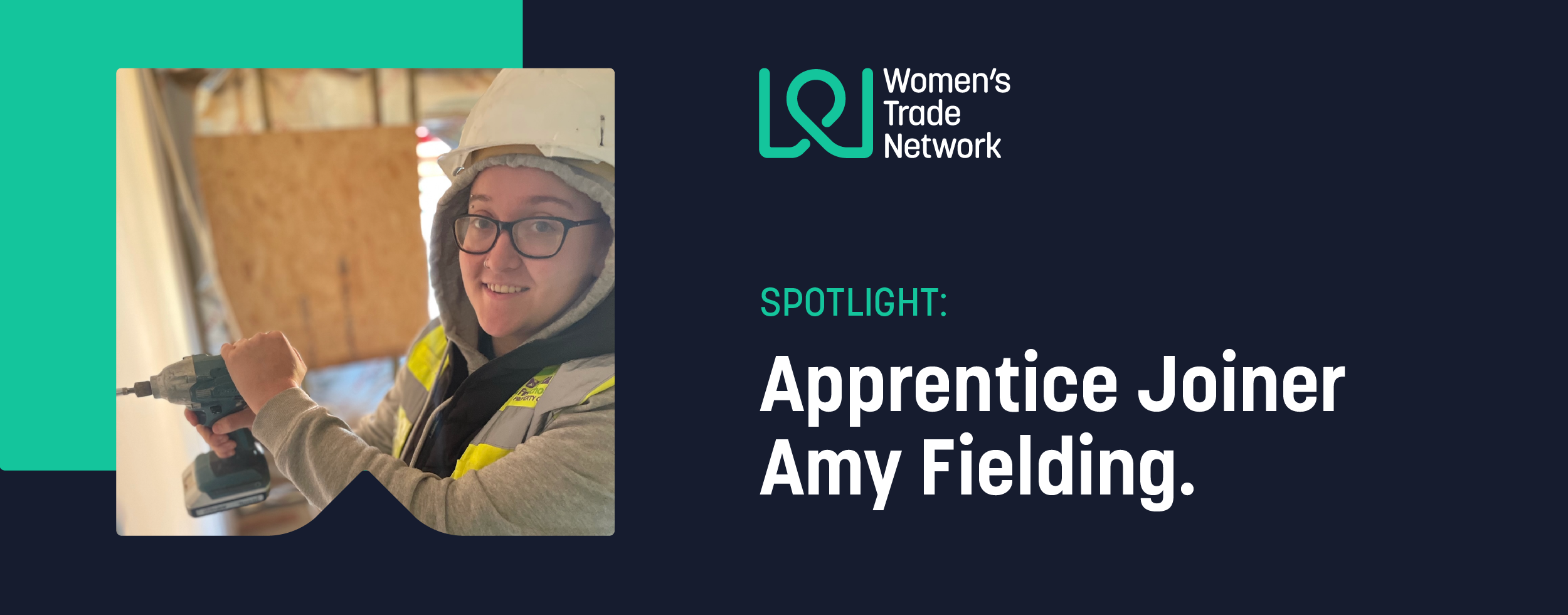Women in Trades: How to Mitigate Potential Barriers to Entry.
The trades and construction industry has become an increasingly attractive field for women looking for a rewarding career path. However, the industry still has a long way to go in terms of gender parity.
The UN Women’s theme for International Women's Day (IWD) 2022 is 'Gender equality today for a sustainable tomorrow' and with this year's IWD themed hashtag of #BreakTheBias, we're celebrating women in all industries who are working to build a more sustainable future for our society.
According to a 2021 report by GoCompare, the trades and construction industry has become an increasingly attractive field for women looking for a rewarding career path, with a 366% increase in women enrolling in trade apprenticeships in the last 5 years. While this is promising progress, the industry still has a long way to go in terms of gender parity – female workers are still being underpaid by an average of £7,115 and are underrepresented at all levels.
So how can companies help to level the playing field? Let's look at some of the potential barriers women might face when attempting to enter the trades industry.
Lack of knowledge about the trades.
A major barrier women face when looking to take up a career in the trades is a lack of knowledge about trade-related careers, as well as the broad range of opportunities available.
Based on accounts from women working in the industry, there appears to be a disparity in the knowledge that men and women have about various trades. Women may be familiar with prominent types of work, such as plumbing, electricals, and plastering, but may not necessarily be aware of the scope of jobs in construction and maintenance as a whole.
Therefore, it's vital for maintenance and real estate companies to actively address this topic in training and public resources. Access to these resources might encourage women who are interested in a career change to consider moving into a skilled manual trade.
Companies should also invest in outreach programmes to expose the public to the range of roles and career pathways available. This could include public campaigns to highlight the benefits of a trade career for diverse sets of people, including women. It would also help to include work with colleges, training providers and employment agencies to give different communities of young, unemployed or interested people a better understanding of the wider industry through taster events, workshops and funded introductory training.
Gender stereotyping and underrepresentation.
Although women contribute to many job sectors, they remain woefully underrepresented in occupations related to manual labour. Traditionally, the trades have been a male-dominated field, so it may be difficult for some women to think of the trades as a viable career choice. In 2019, a Construction Management magazine article found that just 2% of the skilled manual workers in construction were women. Since then, the figure has increased slightly for skilled roles, such as those in the electrical trades; however, women still make up less than 5% of the workforce in these roles.
Companies can take meaningful steps to help to combat this underrepresentation. For example, by diversifying recruitment processes in the early stages of the hiring process and ensuring that there are women visibly represented within their workforce. Companies should also actively promote their role as employers that support women to continue developing their careers during different life stages.
Out in the field, the stereotypes often associated with this type of work (and work environment) may also be intimidating. While gender stereotypes are changing, they are still prevalent in many ways – women working in trades have spoken about dealing with stereotyping that assumes they are not strong enough or capable enough for manual labour. As a result, some potential tradeswomen may choose not to pursue a career if they feel they may experience discrimination from their colleagues or on the job. There are simple, practical steps employers can take to create a more female friendly workplace, as well as cultural changes to create an environment of inclusivity. It is a topic unto itself which will be tackled in future blogs from our network.
Thankfully, the idea of "gendered" work roles is losing its relevance in many industries. In recent decades, women have entered many other traditionally male-dominated industries (and vice versa), and there's still a significant number of women looking for skilled jobs in construction and maintenance, with at least one in 10 apprentices being female.
Within the community, qualified women are also rallying together, forming groups such as the Women’s Trade Network and Women On The Tools to provide a supportive space for women in the sector and those interested in pursuing careers in trade.
Businesses should also actively work to continue challenging outdated stereotypes and encourage young people and career changers to think flexibly about their future options, regardless of gender.
Competitiveness and flexibility.
In the early stages of their trade careers, women may struggle with competition against men with similar education and experience. This is because of unconscious bias in hiring decisions. Companies should assess their own recruitment processes to ensure they are open and fair to all potential hires – for example, conducting blind recruitment processes and removing identifying details from prospective CVs.
It's also important for employers to create opportunities for women workers, especially for those with family commitments. This could include offering flexible work schedules and part-time work for all employees, and implementing company-wide mentorship programs to help young tradespeople develop in their roles and progress into more senior positions within their organisations.
Fortunately, outdated views of women in the trade workforce are radically changing within organisations and companies are taking the necessary steps to address this. Companies employing female tradespeople gain a competitive advantage in meeting customer needs. Housing providers in particular stand to improve tenant satisfaction by reaching more women who are vulnerable, living alone or those with a religious need. Research also shows that 51% of people believe a female would be more respectful of their home.
In conclusion.
The trade and construction industries still have some way to go in terms of gender equality, but companies have their own roles to play in making great strides across the sector. Rather than shying away from personal experiences, employers must recognise the differences that exist between the gendered experiences in the trade industry and the impact this can have on an individual's success. Organisations like the Women’s Trade Network and its circle of 60+ real estate partners are tackling these issues head on and continue to champion the importance of women in the trade sector.
In the long run, companies that actively work to mitigate these potential barriers and promote flexible workplaces for all staff will boost their chances of attracting – and retaining – a talented and diverse workforce.



.jpeg)




